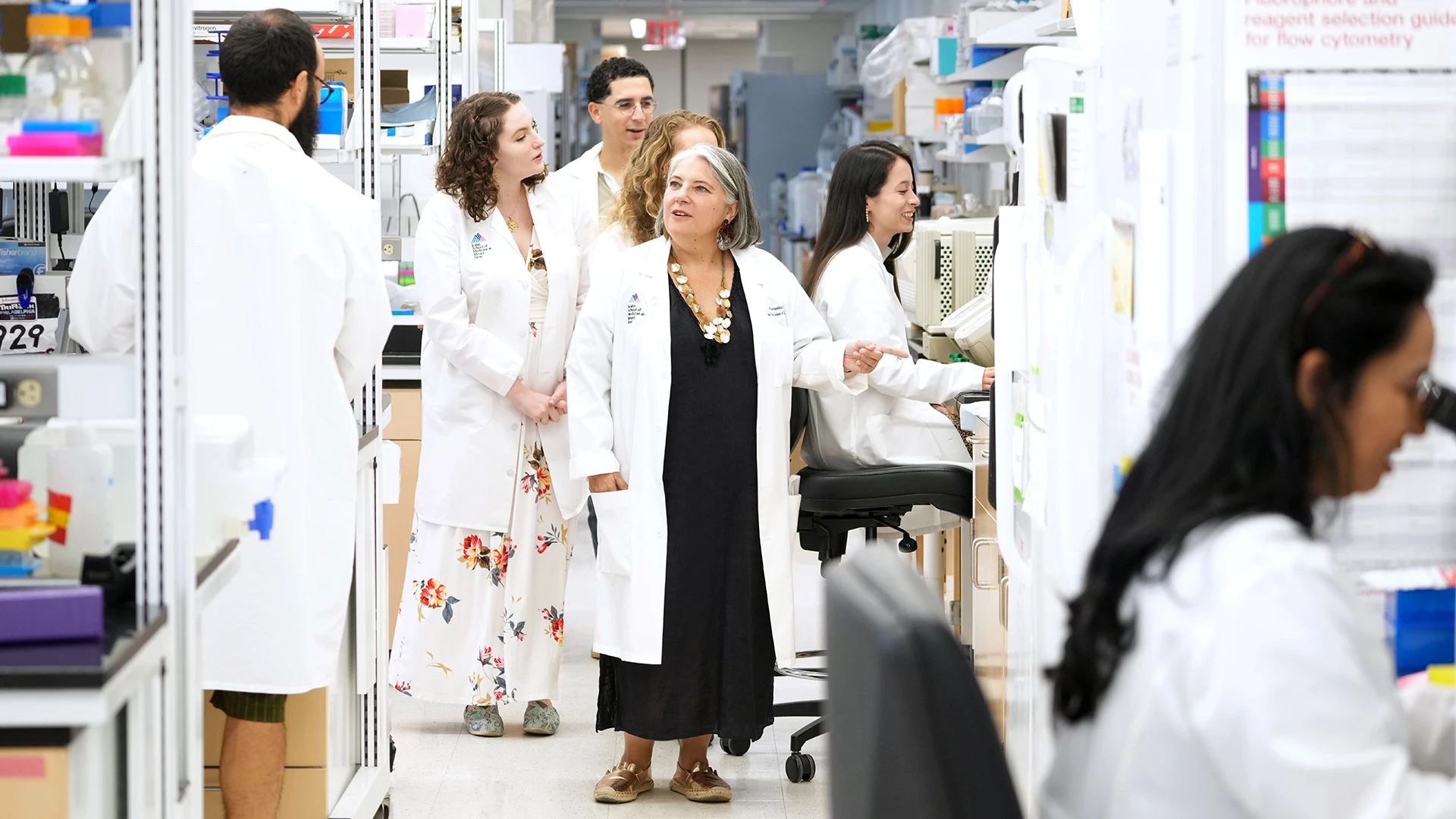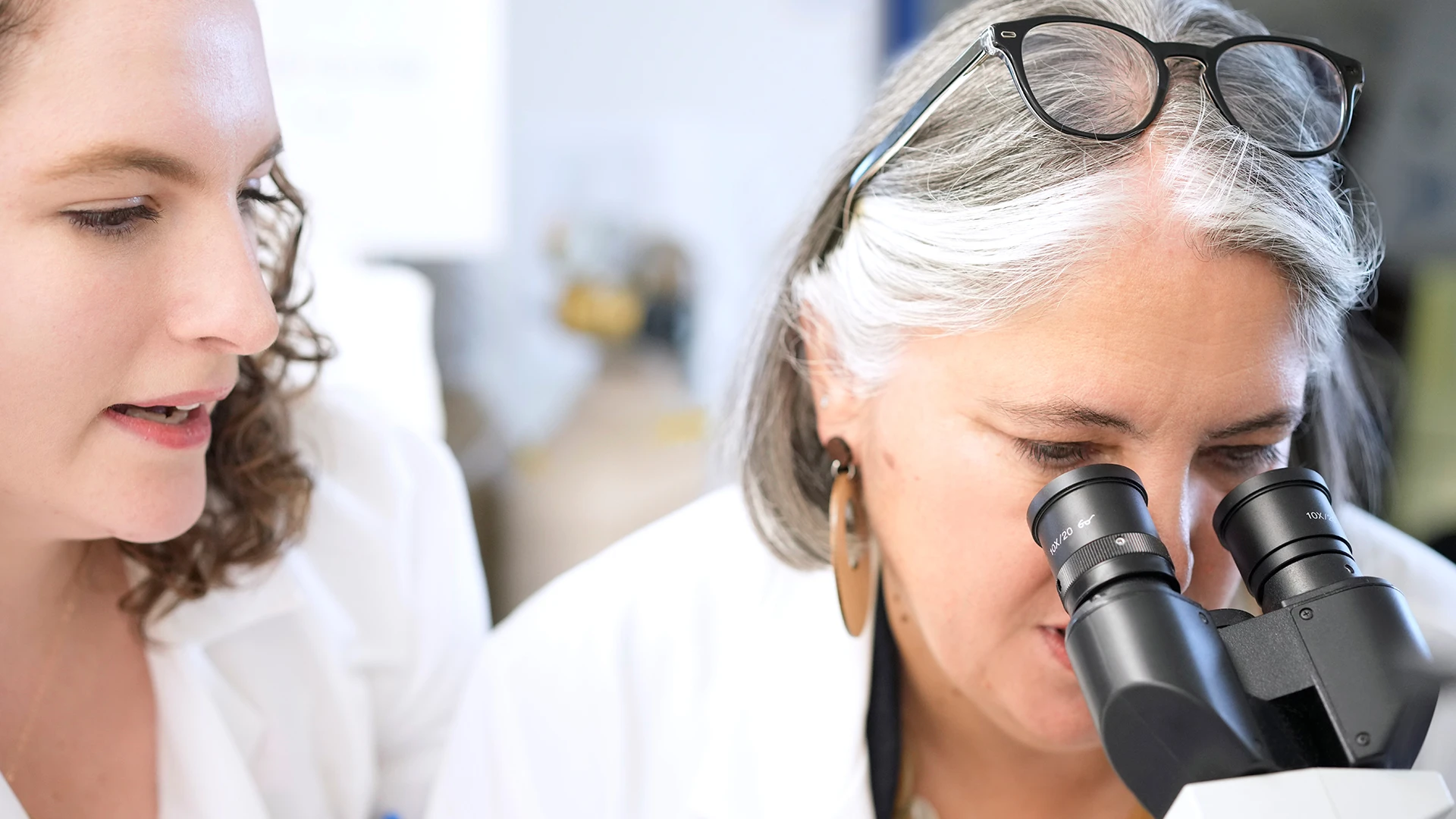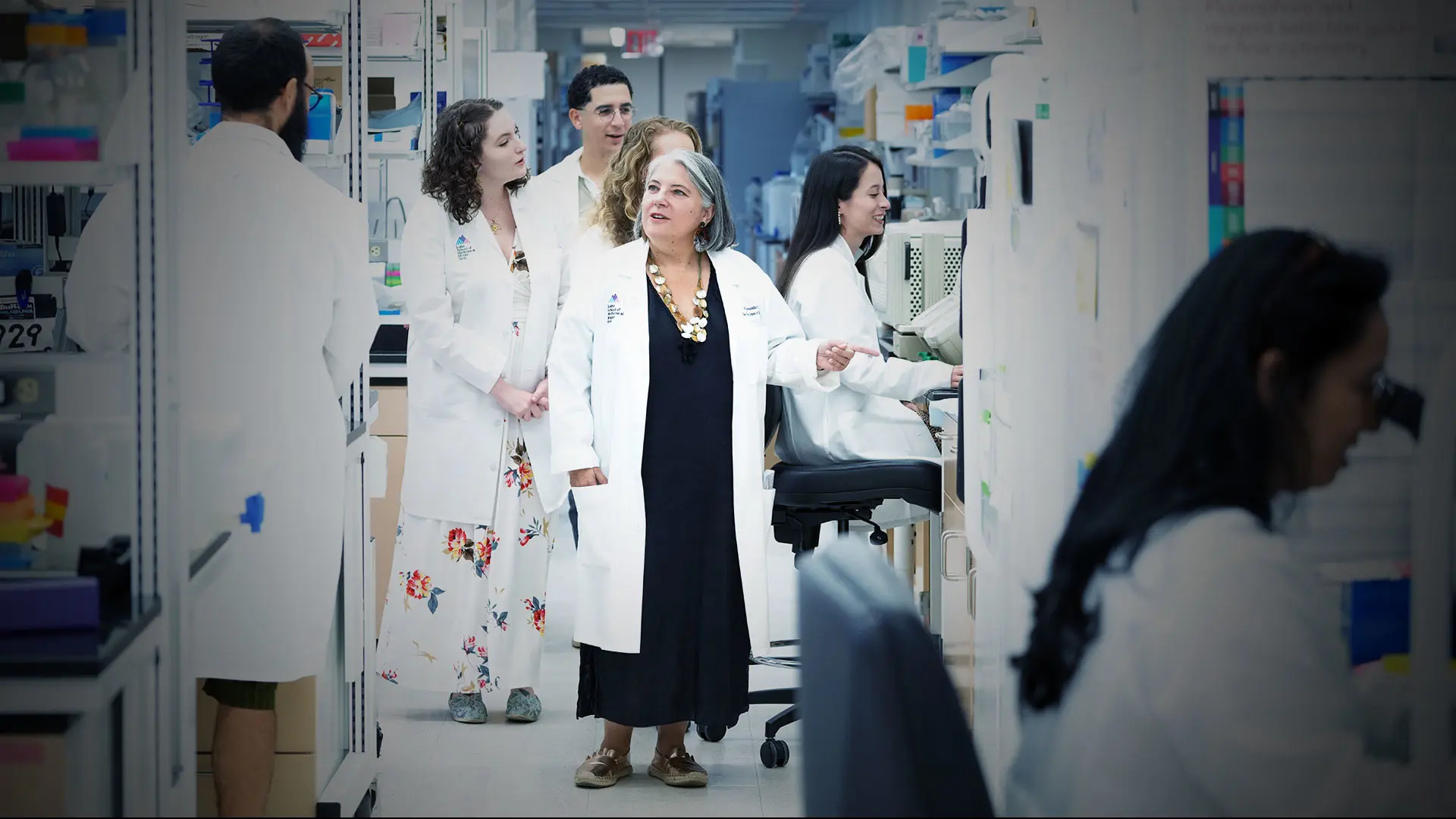Dr. Fernandez-Sesma, who is also Mount Sinai Professor of Microbiology and Infectious Diseases, has distinguished herself as an investigator focused on the mechanisms of immune evasion used by viruses, including dengue (DENV), influenza, human immunodeficiency virus, Zika, and SARS-CoV-2, to establish infection in humans. Her research has uncovered the mechanisms used by RNA viruses, such as DENV, to circumvent the host immune responses and the role of cellular elements, such as mitochondrial DNA, to alert the immune system after RNA viral infections.
She leads a department that was ranked No. 11 in National Institutes of Health (NIH) funding in Microbiology among U.S. medical schools (Blue Ridge Institute for Medical Research, 2022 fiscal year), and is renowned for its rich research and educational opportunities for medical and graduate students, and postdoctoral fellows at Mount Sinai’s Graduate School of Biomedical Sciences. The department, which offers two PhD training opportunities for graduate students—the Microbiology Multidisciplinary Training Area and the Training Program in Mechanisms of Virus-Host Interactions—has 19 independent laboratories.

Ana Fernandez-Sesma, PhD, with members of her lab.
Mount Sinai’s Department of Microbiology has long been at the forefront of respiratory virus research and vaccine development under the leadership of Peter Palese, PhD, Horace W. Goldsmith Professor and Chair of Microbiology for the last 35 years. Dr. Palese is a legendary researcher in the area of RNA-containing viruses with a special emphasis on influenza viruses, having established the first genetic maps for A, B, and C viruses, among other major accomplishments, and he is a pioneer in the field of reverse genetics for negative-strand RNA viruses.
Mount Sinai’s Department of Microbiology has long been at the forefront of respiratory virus research and vaccine development.
Dr. Fernandez-Sesma has been ranked among the top NIH-funded investigators in Microbiology in the United States. She was a member of the Division of Infectious Diseases and Microbiology Scientific Advisory Council of the National Institute of Allergy and Infectious Diseases (NIAID) of the NIH from 2018 to 2022, when she also chaired the NIH/NIAID Human Immunology Project Consortium Steering Committee. Currently, she participates in several NIH-funded multi-investigator projects and is the lead investigator of the Viral Immunity and Vaccination (VIVA) Human Immunology Project Consortium.
She has co-authored numerous publications in virology and immunology journals, sits on the editorial board of the Journal of Virology, is a section editor for mSphere and PLOS Pathogens, and is a fellow of the American Academy of Microbiology.
Significantly, Dr. Fernandez-Sesma is highly dedicated to graduate education and mentoring, and co-directed the Microbiology Multidisciplinary Training Area from 2010 to 2020. She has also mentored numerous students and postdoctoral fellows in her laboratory.

Ana Fernandez-Sesma, PhD, with a lab member.
In 2023, Dr. Fernandez-Sesma was the first woman to be honored with the Camino Real Award from the Benjamin Franklin Research Institute of the University of Alcalá in Spain. In presenting the award, Spain’s King Felipe VI cited Dr. Fernandez-Sesma’s scientific work at Icahn Mount Sinai during the last 22 years and her recognition today as a world reference on studies related to pathogens that cause infectious diseases.
